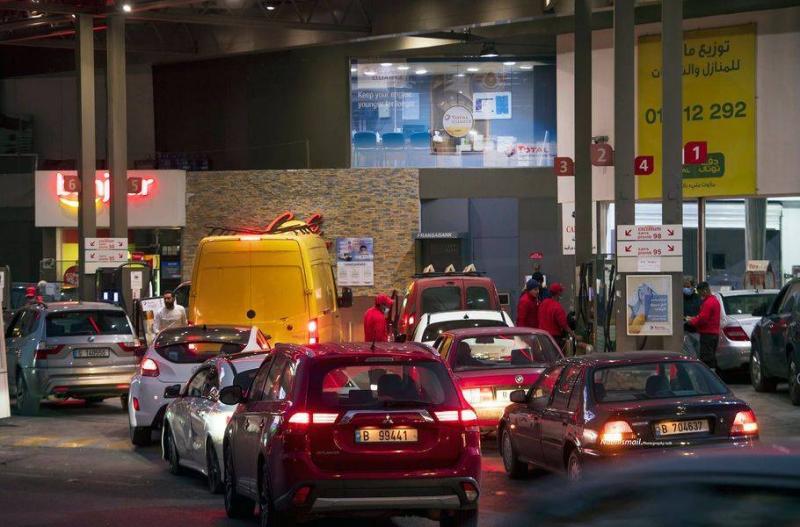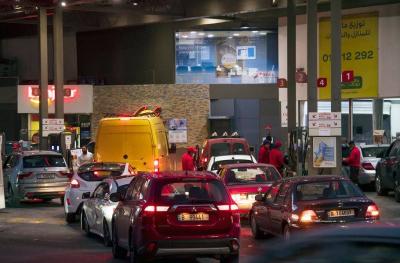The global rise in oil prices due to the Russian-Ukrainian war has led to a surge in fuel prices in Lebanon, where the price of a gasoline canister has exceeded 440,000 Lebanese pounds, a figure slightly more than half the minimum wage in the country, amid predictions of further increases. This spike greatly exacerbates the commuting problems for Lebanese people traveling to work, schools, and universities, in a context of almost complete lack of public transportation services.
This crisis has dealt a severe blow to many Lebanese, especially owners of large-engine vehicles, who held onto their cars after the lifting of fuel subsidies throughout last summer, only to find that they had become a burden they are now trying to shed by any means possible.
Young man Osama is offering his large car for sale at just $7,000, while its actual value exceeds $10,000, in an effort to escape its high gasoline consumption, while he seeks to acquire an economical small car instead. In a similar vein, Sarah, an employee, told "Sky News Arabia" that "the small car that used to cost $3,000 or $4,000 before the fuel crisis has now risen to $5,000 or more due to increased demand."
Eli Qazi, head of the used car importers syndicate in Lebanon, sees that "the rise in fuel prices, particularly gasoline, forces used car dealers to import economical vehicles with small 4-cylinder engines." He continues in his remarks to "Sky News Arabia": "Those who used to own large and luxurious cars have left them at home and started commuting in smaller cars to save on fuel, then decided to sell them at a low price to get rid of them. About 10% of customers do not part with their large-engine cars despite their high gasoline consumption, and they are often businesspeople and traders."
He added: "What encourages the purchase of economical cars is the still low customs tax on them, which we pay based on a dollar rate of 1,500 pounds. Here, we benefited alongside the consumer from the difference in the current dollar price, which exceeds 20,000 pounds. The car for which we used to pay approximately $5,000 in customs now costs us only $300."
According to Qazi, it is possible to "sell our cars at a reasonable price, and we have submitted a project for study in the Parliament to link customs to the car price, in response to news of a possible increase in the customs dollar rate to the actual current dollar price. If that happens, car prices will skyrocket radically because the tax on them will exceed 100 million pounds, which in itself would be a disaster for the entire sector."
The Ukrainian-Russian war exacerbates Lebanon's suffering, he continued: "Currently, we pay a fixed customs fee of about 7 million pounds for our imported cars, which is reasonable for small economical cars and makes them accessible to the lower-income segments of the population, especially given the absence of public transport in Lebanon to get employees and students to their jobs and schools."
In this context, used car dealer Rami Haymour said that "the vast majority of citizens who own cars with large engines between 6 and 8 cylinders are currently selling or leaving them behind, turning instead to small cars whose demand has increased." He added in his remarks to "Sky News Arabia": "Sales activity was better last year and has decreased by 70% since the beginning of this year. While the lifting of customs fees saw renewed interest in cars, the delay in addressing the issue of increasing the customs value has revived stagnation in the market once again."
He concluded by stating: "Economical cars, especially Korean ones, are in demand from traders and consumers, and there is a trend towards importing electric and hybrid vehicles that operate on both gasoline and electricity. However, what hinders their spread is the lack of electricity availability in Lebanon, which is only for a few hours a day, often less than two hours."




